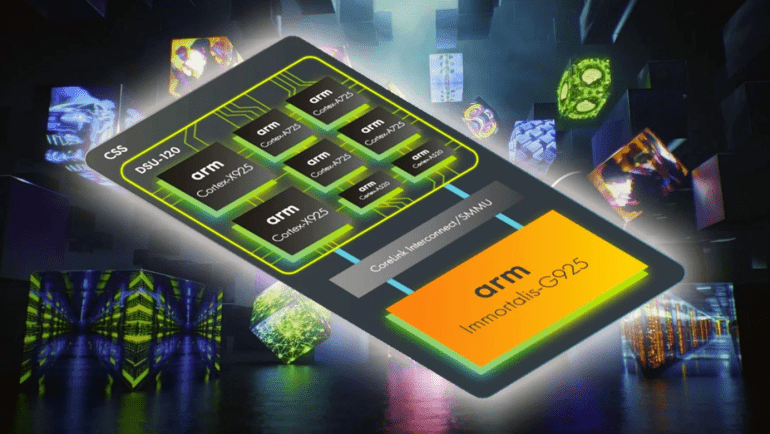- Arm introduces Compute Subsystems (CSS) for Client, enhancing mobile computing.
- CSS for Client offers unparalleled CPU and GPU performance and efficiency.
- Arm Kleidi software suite optimizes AI and computer vision applications for developers.
- Collaborations with industry leaders like Intel Foundry and Samsung Electronics strengthen Arm’s position.
- The combination of CSS for Client and Kleidi software shapes the future of AI in mobile computing.
Main AI News:
In the ever-evolving landscape of technology, where artificial intelligence (AI) reigns supreme, Arm, with its commitment to power efficiency, unveils its latest innovation: Arm Compute Subsystems (CSS) for Client. Positioned as the bedrock for the next wave of computing demands, Arm’s CSS for Client is set to redefine mobile experiences with unparalleled performance, efficiency, and accessibility.
Empowering Silicon Partners and Developers
Arm CSS for Client is not just about enhancing user experiences; it’s about empowering silicon partners to innovate swiftly and efficiently. By providing a comprehensive solution, Arm enables its partners to capitalize on leading process nodes, thus accelerating their time to market. With CSS for Client, building Arm-based solutions becomes easier and faster, setting a new benchmark for mobile computing.
Unprecedented Performance and Efficiency
At the core of CSS for Client lies a revolutionary CPU cluster – the Arm Cortex-X925, boasting unprecedented performance and power efficiency. Leveraging cutting-edge 3nm process nodes, this CPU delivers a remarkable 36 percent increase in single-thread performance compared to previous flagship SoCs. Moreover, for AI applications, the Cortex-X925 offers a staggering 41 percent performance uplift, heralding a new era of responsiveness for on-device AI tasks.
But performance isn’t the only focus; efficiency is equally paramount. The introduction of the Arm Cortex-A725 CPU marks a 35 percent improvement in performance efficiency, catering specifically to AI and mobile gaming use cases. Combined with the refreshed Arm Cortex-A520 CPU and updated DSU-120, CSS for Client ensures power efficiency and scalability enhancements across consumer devices.
Revolutionizing Graphics Performance
Complementing the CPU prowess is the Arm Immortalis-G925 GPU – the most performant and efficient GPU in Arm’s arsenal to date. Boasting a 37 percent increase in performance across leading mobile gaming applications and a 34 percent improvement in AI and ML tasks, the Immortalis-G925 sets a new standard for graphics performance in flagship smartphones.
Optimizing Software for Developer Innovation
Arm’s commitment to fostering developer innovation is evident through the introduction of Arm Kleidi – a suite of software solutions tailored for AI and computer vision applications. KleidiAI and KleidiCV provide developers with the tools and performance optimization needed to unleash the full potential of AI-enabled applications. Integrated seamlessly with popular AI frameworks, such as PyTorch and Tensorflow, Kleidi ensures developers can leverage Arm’s computational power effortlessly.
A Collaborative Ecosystem
The significance of Arm’s CSS for Client extends beyond its technological prowess. Collaborations with industry giants like Intel Foundry and Samsung Electronics underscore the collective effort to push the boundaries of mobile computing. With Intel Foundry’s commitment to leading-edge technology nodes and Samsung Electronics’ expertise in silicon technologies, Arm’s vision for the future of AI becomes increasingly tangible.
Conclusion:
Arm’s unveiling of Compute Subsystems for Client and the Kleidi software suite signifies a significant leap forward in mobile computing. With enhanced CPU and GPU performance, along with optimized software for developers, Arm is poised to meet the demands of the AI era. Collaborations with key industry players further solidify Arm’s position, promising an exciting future for the mobile computing market.

